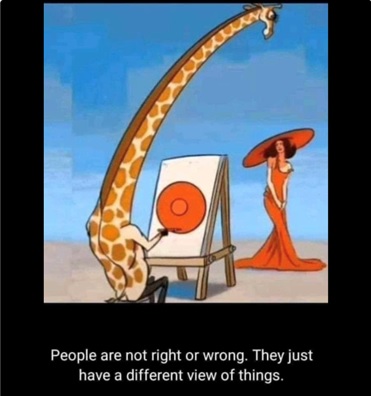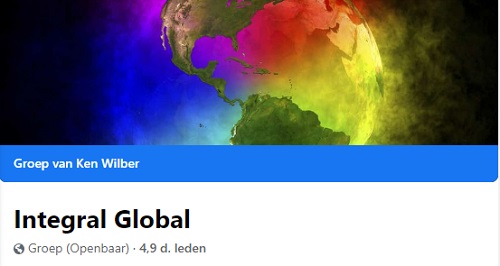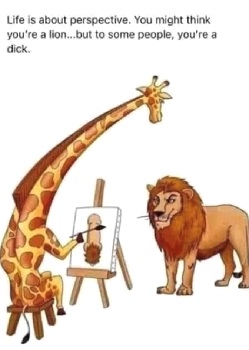|
TRANSLATE THIS ARTICLE
Integral World: Exploring Theories of Everything
An independent forum for a critical discussion of the integral philosophy of Ken Wilber
 Dr. Joseph Dillard is a psychotherapist with over forty year's clinical experience treating individual, couple, and family issues. Dr. Dillard also has extensive experience with pain management and meditation training. The creator of Integral Deep Listening (IDL), Dr. Dillard is the author of over ten books on IDL, dreaming, nightmares, and meditation. He lives in Berlin, Germany. See: integraldeeplistening.com and his YouTube channel. He can be contacted at: [email protected] Dr. Joseph Dillard is a psychotherapist with over forty year's clinical experience treating individual, couple, and family issues. Dr. Dillard also has extensive experience with pain management and meditation training. The creator of Integral Deep Listening (IDL), Dr. Dillard is the author of over ten books on IDL, dreaming, nightmares, and meditation. He lives in Berlin, Germany. See: integraldeeplistening.com and his YouTube channel. He can be contacted at: [email protected]
SEE MORE ESSAYS WRITTEN BY JOSEPH DILLARD Where Does the Integral Worldview Most Require Rebalancing?Joseph Dillard
 Integral Global is the Facebook presence of Ken Wilber, a site overseen by Corey DeVos with comment moderating support by Robb Smith and Bruce Alderman. I thought Integral Global would be a good place to ask the following two questions:
 I posed the title as a question because the Integral worldview may not require rebalancing. I certainly did not think it did for many years. Ken Wilber has clearly worked very hard at creating a map that is inclusive and balanced. His position is that most of the complaints regarding Integral AQAL come from a lack of understanding, creating straw man arguments. To a large extent, I agree. Before I get to the answers various integralists gave to these two questions I want to list some of the many strengths of the integral (AQAL) worldview. Integral AQAL is:
This is by no means a complete list, but it does serve the purpose of illustrating the broad and significant value and benefit of integral AQAL as a form of cognitive multi-perspectivalism, map, and worldview. Now let's turn to various Integralist responses to my first question, 1. “We are all aware of the multiple strengths of the integral worldview or we wouldn't be here. What, in your estimation, are the weaknesses or limitations of the integral worldview?” “It doesn't have the ability to actually lift people to higher developmental levels. it can only show them what those levels are, and the danger in that is that people will think they are at a higher developmental level just because they can understand the description of it, kinda like when scientists think they can understand the operations of a cell simply by a description of what is happening, which doesn't get at the underlying depth and complex structure of what is actually involved.” “Ivory tower thinking. Getting lost in books, models and systems (along with over-intellectual vocabulary). A false sense of superiority. Too much focus on self-development and not enough on the world. Retreat into the UL quadrant when the world becomes too ugly. I know I'm guilty of many of those.” “The Wilber combs matrix is the proof of the deficit. It is a law of nature that the differentiation of one force into two must be witnessed by another. Consciousness separates from thinking. The soul combines intelligence and will with love for wholeness. Otherwise they are just ivory towers and not the realization of the divine.” “Models about consciousness development do not integrate that souls live many incarnations. The state of knowledge of the previous life is transferred to the new incarnation in a certain way, as well as the learning tasks that could not be solved. For many subjects, three or more lives are needed. These challenges have greater significance than stages and stages.” “Overemphasis on cognitive line (in theory and practice) “The "tier" thing.” “Labeling others, confusing the map with the terrain, assuming one is more developed than others, or placing oneself in a higher stage. Which is more integrated...the ability to understand the concepts of the matrix intellectually...or the ability to be One with all that is?…” “IQ (needed for most to understand the complexities of integral) does not create EQ (embodied intra and interpersonal intelligence ) or SQ - social and community intelligence.” “Folks who think they are integral. . .and with every fiber of their being attempt to smote out of existence the Integral Vision = those who proudly ride the 'Epistemic Injustice', lane. WHY? In Ken Wilber's words from The Eye of Spirit p.349 “It is hyperanalytical and only synthetic in (that) way, which ultimately cannot be organically synthetic.” “One weakness is that many haven't embodied it. Integral can really feed the intellect. Hence we see so many on this site speaking abstractly about integral, or taking the Pomo notion that any perspective is integral ....while falling very far short of imparting a sense of an integral value system or worldview. This can be true in each stage..... but I find integrals cognitive complexity can attract those at lower stages and just inflate separation.....” “Runs the risk of turning people into karma chameleons or people pleasers because they try to understand and incorporate all perspectives. This tendency is doubly toxic when coupled with a Green ambition to widely market "spiritual" commodities and services.” “Definitely a strong bias in regards to post modern stage; much criticism of this stage I find it about the down sides of modern stage!” “As aurobindo put it, if the mind transcends but the soul (ego) does not, nothing is gained.“ “The community, for all the reasons so well put by others above. Most specifically: (ironically) lack of self awareness, performative self contradictions, confirmation bias, raging egos, self aggrandisement and the burning need to label anyone that disagrees with them as 'mean green'. (Usually those last ones are punching up, based upon their behaviour.) Here is my own list of some of the limitations that integral is struggling to integrate, to include and transcend:
Here are the answers I received to the second question: 2. What do you see as the necessary correctives for Integral 1) theoretically, 2) behaviorally? What does an embodied Integral feel like to you? “1. Awakened to the inner collective, all the significant dimensions of the self, in a hierarchical proportionate context. “I think a big limitation is that not many people actually have a world view! For example (how) much do you post about Israel and Palestine vs Indonesia and West Papua or Ethiopia and Tigray etc. etc. etc. I think it is really hard to actually have a world view. Maybe we are many generations away from achieving it?” “Leaning too heavily on a frisky grid as a model of reality.” (Wilber once referred to the scientific explanation of evolution as “frisky dirt.”) “The core is ethics/morality embodied in wisdom. Part of that embodiment can be in the form of commodities, but at it's heart it requires a commitment that cannot come from merely strategic or transactional relationships. I think John Vervaeke, for example, has a general sense of this kind of wisdom. I want to learn more about their approach. I've outlined an ethical theory in Self, Society, and Spontaneity (pointedly available for free) focusing on a social or collective sense of wisdom, but it only frames understanding. These kinds of wisdom emerge out of specifics of time and place across all dimensions of collective well-being, such as lines and stages. In that respect, the goods and services aspect of a spiritual endeavor can help, but only if they are motivated by a commitment to that wisdom. It's not easy to navigate the difference.” “Shadow work, shadow work and more shadow work.” I didn't receive as many answers to this second question as I did to the first. Clearly, it is easier to complain and focus on problems than it is to maintain a solution focus. Here is my list. Integral would benefit by placing a:
The priorities and blind spots of integralists vary, but on the whole they create a profile. It includes such elements as:
Conclusion
We all have a natural tendency to prefer our own worldview or we wouldn't have it, and therefore to advance and defend it over other worldviews. The result is an inherent and inevitable tendency toward elitism and exceptionalism that is always present and needs to be identified and objectified if we are not to simply spend time in self-justification rather than in dismantling our addiction to our sense of self. How important is it to point out the elitism and exceptionalism that is baked into Integral AQAL in particular and idealisms/ideologies in general? The challenge is that calling out elitism, exceptionalism, and hypocrisy is easy to do; it is low-hanging fruit, while at the same time it opens us to the charge of sanctimonious self-righteousness and virtue signaling. It is a difficult charge to defend against, because to do so can always be seen as simple psychological denial. Therefore, it is incumbent upon integralists, including myself, to accompany criticisms with possible solutions, and to put the majority of time and energy into producing realistic alternatives. However, if we do not first recognize how, when, and where we are stuck we can easily find no reason or use for the solutions proposed. Therefore, calling out the limitations of Integral AQAL has its place, and it is incumbent upon Integral, beginning with its leadership, to take those limitations seriously and attempt to provide realistic reframings and behaviors. Much to its credit, Integral Life Practices do a very good job of this. What are your thoughts on these two questions? What, in your estimation, are the weaknesses or limitations of the integral worldview? What do you see as the necessary correctives for Integral?
|